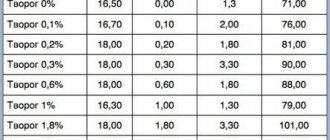What are the differences between whey protein and casein?
Whey protein and casein are two of the most popular products on the sports nutrition market, and for good reason.
Both proteins are high quality, bioavailable, complete proteins rich in branched chain amino acids (BCAAs), making them ideal for muscle growth and recovery. Although both are made from dairy products, there are some differences between these “brothers”. Both proteins are made from dairy products and are derivatives of the cheese making process. In fact, all dairy products contain a mixture of whey and casein. For example, milk contains about 80% casein and 20% whey.
Whey Protein
The whey-based mixture is fast, it begins to act within 40 minutes after administration and almost instantly saturates the muscles with an amino acid pool. By the way, about the presence of amino acids, it is the most valuable for all proteinogenic components, including BCAA.
This supplement is simply indispensable for all training programs for gaining mass, losing weight, and maintaining shape.
It is able to instantly suppress catabolism and close the protein window during the periods most necessary for this - before training, after it, and also in the morning.
What are the differences between casein and whey protein?
Whey protein is its faster brother and is digested faster by the body. Casein is considered slower because it is digested gradually. Casein clumps into clumps when it hits the stomach and can take 5-7 hours to digest, while whey protein takes a couple of hours to digest.
Although both proteins are high in amino acids per serving, whey protein is considered anabolic and mass-building due to its ability to increase the supply of amino acids in the blood, which is necessary to trigger protein synthesis. Casein has an anti-catabolic effect, preventing the breakdown of muscle tissue due to the constant and uniform supply of amino acids to the body over a long period of time.
Whey Protein or Casein: Which is Better for Gaining Mass?
Whey Protein or Casein: Which is Better for Gaining Mass? Scientists have analyzed this issue in detail - read about the research results.
Whey Protein or Casein: Which is Better for Gaining Mass?
Most athletes and amateurs are very familiar with whey protein, namely whey protein concentrate and whey protein isolate. Both of these products are considered “fast” (i.e. easily digestible) and have high biological value.
Isolate and concentrate are typically used before and after workouts or any time the body requires a quick and effective source of protein.
Also popular are “slow” proteins such as calcium caseinate and micellar casein. Their biological value is slightly lower than that of concentrate and isolate. These foods are prized as "overnight" proteins because they provide a consistent supply of amino acids over a long period of time. What is better for gaining muscle mass, whey protein or casein?
Whey and casein hydrolysates
Peptide-based proteins have been making a lot of noise lately due to their ability to quickly enter the bloodstream, essentially bypassing the digestion process. These are whey protein hydrolysate and casein hydrolysate. They contain fragments of protein chains consisting of two or three peptides (di- and tripeptides), which are instantly absorbed and increase the level of amino acids in the blood. The properties of hydrolyzed proteins are impressive, but due to their bitter taste and high price, their popularity is not so great.
Whey concentrate vs casein
A recent study compared the effects of whey protein concentrate and casein on muscle protein synthesis after resistance training. The subjects were 17 young men who did not have any diseases and were in excellent physical shape. They performed strength training on an empty stomach (10 sets of 8 repetitions at 80% of their one-time maximum load). After training (within 5 minutes), participants consumed either water and casein or whey protein. And this is what the study showed.
Whey Protein Effects:
- an immediate increase in IGF-1 (insulin-like growth factor 1) levels, which reached a maximum within 30 minutes;
- an increase in insulin levels within 15–60 minutes after administration;
- more pronounced synthesis of muscle protein in the first time after training (compared to casein).
Recommended article: “3 Ways Whey Protein Helps You Lose Weight and Burn Fat.”
Effects of casein:
- does not have a significant effect on insulin release (compared to whey protein);
- increased muscle protein synthesis within 6 hours, unlike whey protein;
- more pronounced anti-catabolic effect.
The conclusion of the study was that whey protein quickly improved muscle protein synthesis, but then this effect decreased just as quickly. Casein increased protein synthesis less sharply, but its effect was longer lasting. Moreover, both whey protein and casein showed the same effects in terms of influence on protein synthesis according to the results of the examination 6 hours after training.
Conclusion
Both whey protein and casein are about equally good for gaining muscle mass. Both products have both disadvantages and advantages. To get all the benefits, it is advisable to consume whey protein and casein in the following ratio: 70% whey protein isolate, 20% micellar casein and 10% whey hydrolysate.
The combination of “fast” and “slow” protein sources provides the benefits of “whey” (rapid increase in amino acid levels in the blood, pronounced insulin response) and casein (long-term saturation of muscles with amino acids, prevention of muscle protein breakdown).
Considering the above and the fact that regular milk contains 20% casein and 80% whey, we can recommend a mixture with this protein ratio to obtain maximum benefits.
When should you take protein?
Fast-digesting whey protein is great for pre- and post-workout use. It will quickly fuel your muscles with minimal risk of stomach upset. Casein is best used when you are not going to eat for a long time, for example before bed or before a long meeting, it will provide a long-term supply of amino acids and a feeling of fullness.
Casein
Casein is one of the proteins in milk. Actually, it is one of the main components of this liquid. The main feature of casein is its unusual texture - the protein molecules are “packed” into small globules-micelles that do not dissolve in water and take a long time to digest. Some forms take up to 7 hours to absorb!
As a result, casein extremely slowly replenishes protein reserves in the body. Therefore, it is recommended to take it in cases where you plan not to eat for a long time. For example, drink a casein-based drink before bed.
In addition, casein is characterized by excellent anti-catabolic properties. Taking it protects muscles from destruction if for some reason it is not possible to replenish the necessary supply of BJU in the body. Not only before bed, of course, but also during trips or at the beginning of the working day, if you can’t take a lunch break.
In general, casein is characterized as follows:
- Slow Digestion
. It can remain in the digestive system for up to 7 hours, after which it will break down into the necessary nutrients and begin to participate in the “construction” of muscle tissue;
- Long-term anti-catabolic effect
. It is precisely because of its slow metabolism that casein helps to cope with the destruction of muscle tissue that occurs due to lack of nutrients due to prolonged periods without food;
- Low price.
Casein is easy to extract and obtain; a lot of it is obtained from milk, and therefore the cost of the finished powder is quite low. If anything, it's cheaper than some other protein brands.
It is worth noting that casein is available in three forms:
- Caseinate. A combination of casein with three simple substances - calcium, potassium and sodium. It is distinguished by its easy solubility, which makes it the easiest to prepare. Dry matter contains up to 90% protein;
- Micellar casein (MC). It is extracted using low-temperature microfiltration technology. Capable of forming micelles even after drying - upon subsequent contact with water - and therefore does not dissolve well. It has the longest absorption time, which is up to 5-7 hours, so it is suitable for preparing drinks consumed before bed;
- Hydrolyzed casein protein (HCP). As the name implies, this is casein that has undergone hydrolysis. Thanks to this, its structure is devoid of micelles, and it becomes easy to digest. GCP metabolizes as quickly as other protein brands, making it ideal for pre- and post-workout use. It has an unpleasant bitter taste.
You should choose the right casein based on your intended use. MK is the basis for drinks consumed before bed, GCP is for taking before and after training, and caseinate is for replenishing the lack of protein in the daily diet.
So, let's summarize.
Advantages
- Low price for most varieties of casein. Only GKP is somewhat expensive;
- Excellent anti-catabolic effect during irregular eating or during night sleep.
Flaws
- Not suitable for preparing drinks consumed before or after workouts;
- GKP has an unpleasant bitter taste and is relatively expensive.
It is very important to choose the right type of casein. Only in this case will it reveal its anti-catabolic effect and become useful and practical.
How to use whey protein and casein?
Whey protein is very versatile: it mixes easily with water or milk, and pairs well with oatmeal, Greek yogurt, peanut butter, or your favorite protein shake.
Casein is great to take before bed. Mix it with a little water or milk (you'll get a kind of pudding), add some Greek yogurt (which itself is a source of casein).
If you want to know more interesting recipes, follow the updates in the Nutrition section.
Just as milk is best consumed with honey, these two proteins will provide more benefits if you use them both after a workout. Try a 50/50 mixture after your workout for a quick and steady supply of amino acids over several hours.
Differences
We have already partially examined the features of each type of sports nutrition. Now let's talk about this in more detail:
- Anabolism. It's no secret that an integrated approach to training gives the best results when the rate of anabolism in orgasm is higher than the rate of catabolism. This is the only way an athlete will gain weight. In the case when catabolism is higher in rate, then muscle weight decreases. Whey protein already within one to two hours increases the level of anabolism to almost 70%, and casein - up to 30. Thus, the whey version of sports nutrition is more powerful, but it acts for a shorter period of time. This once again proves that an integrated approach to taking these supplements is more effective.
- Catabolism. The results of training largely depend on the rate of catabolism. Thus, casein has shown its best side - it is able to reduce negative effects for several hours, starting from the second hour after administration. In this regard, whey and egg whites, of course, lose. Therefore, if there are long periods of time between meals, it is better to give preference to casein. It is better to drink egg or whey protein before and after exercise. This comprehensive method of administration is the best option for active athletes.
- Features of reception. It is better to take whey protein in the morning (immediately after waking up) and after exercise, when the body needs energy and the necessary amount of protein to recover. We know that the maximum growth of muscle fibers occurs after visiting the gym, so egg or whey protein will come in handy. At the same time, a comprehensive approach is considered more effective.
Casein is a protein of lower quality and, as we have already figured out, it is digested more slowly. Its multi-component composition gives it the best anti-catabolic and restorative properties. Therefore, the optimal time to take it is in the morning or before bed. It is also necessary to drink casein protein in case of a long break in food intake.
Isolate
Protein isolate is almost pure protein (more than 90 percent of it). This feature is due to the unique production technology of the substance, during which all carbohydrates and fats are carefully removed. The production process involves multi-stage filtration and microfiltration, as well as the use of ion exchange technology.
Video
What to choose – casein or isolate?
Many bodybuilders argue which sports nutrition is better - casein protein or isolate, what's the difference? It is not easy to give a definite answer, since each product has its own pros and cons, so you must focus on your goals.
Research by Yves Boiry
For weight loss
Now let’s look at whether whey or casein protein is better for weight loss.
As you know, in the morning, during training and after it, muscles simply need protein as an energy source, the most important substance for growth, development, muscle regeneration, as well as suppression of catabolism.
If you do not saturate the muscles with the required portion of amino acids when they require it, and these are hour-long intervals between the stated periods, a catabolic reaction will begin, the process of breaking down muscle molecules for the needs of the body - its restoration and replenishment of energy reserves. This process occurs in any training program, especially when losing weight, given the protein deficiency in most known diets.
Casein is not a helper here, it will not be able to replenish the body’s reserves as quickly as necessary and provide high-quality training, moreover, it activates the fat burning process worse than whey.
But this does not mean that casein is less preferable when losing weight.
Due to the low rate of absorption, with full, long-term saturation, it is able to replace one of the meals without being satiated with excess calories, allowing a person losing weight to avoid the frequent desire to snack. And, in addition, at night, whey protein is not able to provide muscles with an amino acid pool for the entire period of sleep, unlike casein.
Thus, we found out that both supplements are necessary during the period of weight loss.
Casein protein for weight loss
In the world of sports supplements, there are many products for maintaining a beautiful figure and losing weight, and one of them is casein protein. It has a long-lasting effect and is slowly absorbed, protecting muscles from destruction. It also reduces the feeling of hunger and gives a long-lasting feeling of fullness. It is suitable for girls and men who watch their weight and lead a healthy lifestyle. What is the best casein protein for weight loss, how to drink and take the supplement correctly - during the day or at night, which one should you choose?











